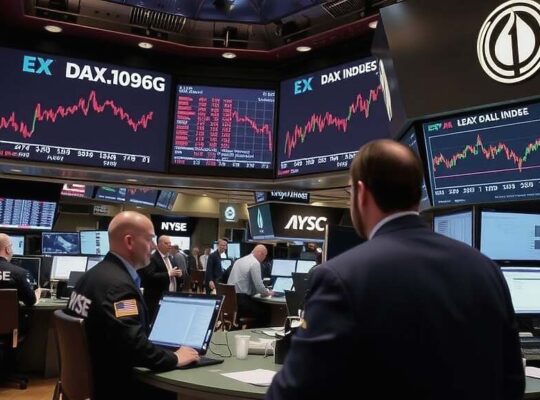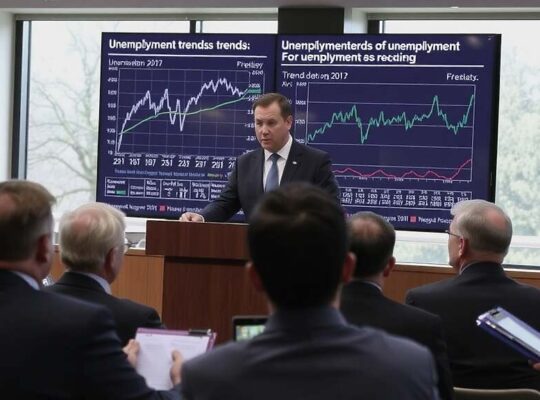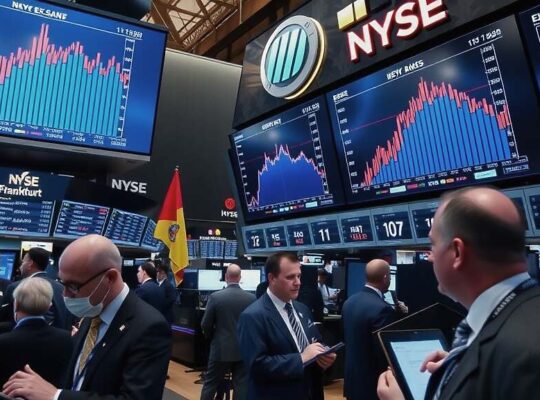European markets opened Friday with significant losses, reflecting growing anxieties stemming from turmoil in the United States’ regional banking sector. The DAX, Germany’s leading index, plummeted nearly 2.1%, closing around 23,765 points, a stark reversal from the previous day’s performance. Only Continental and FMC managed to buck the downwards trend, while Deutsche Bank, Rheinmetall and Siemens Energy bore the brunt of the losses.
“Fear has returned to the market” stated Thomas Altmann of QC Partners, highlighting the shift in investor sentiment driven by the recent instability impacting two US regional banks. These developments have ignited concern about a potential new systemic crisis, extending beyond initial anxieties. Altmann pointed out that the emergence of this new trigger has also manifested in a marked increase in volatility indices. The VIX, a key measure of market volatility, breached the 25 threshold for the first time since May, signaling heightened uncertainty amongst investors.
The sell-off indicates a delayed reaction within Europe, as markets struggle to fully digest the dramatic losses that transpired on Wall Street yesterday. The implications for European economies, already grappling with persistent inflationary pressures and geopolitical uncertainties, remain substantial. Experts warn that further volatility is likely as investors reassess risk exposure and anticipate potential future interventions by central banks.
The euro briefly strengthened to $1.1703 against the US dollar, but the overall economic picture remains complex, influenced by global risk aversion. Simultaneously, the price of Brent crude oil declined, falling to $60.65 per barrel, a decrease of 0.7% from the previous day’s close, further reflecting the prevailing atmosphere of economic caution. The situation underscores a growing disconnect between perceived economic health and market realities and raises questions about the effectiveness of current monetary policies in navigating an increasingly precarious global economic landscape.












